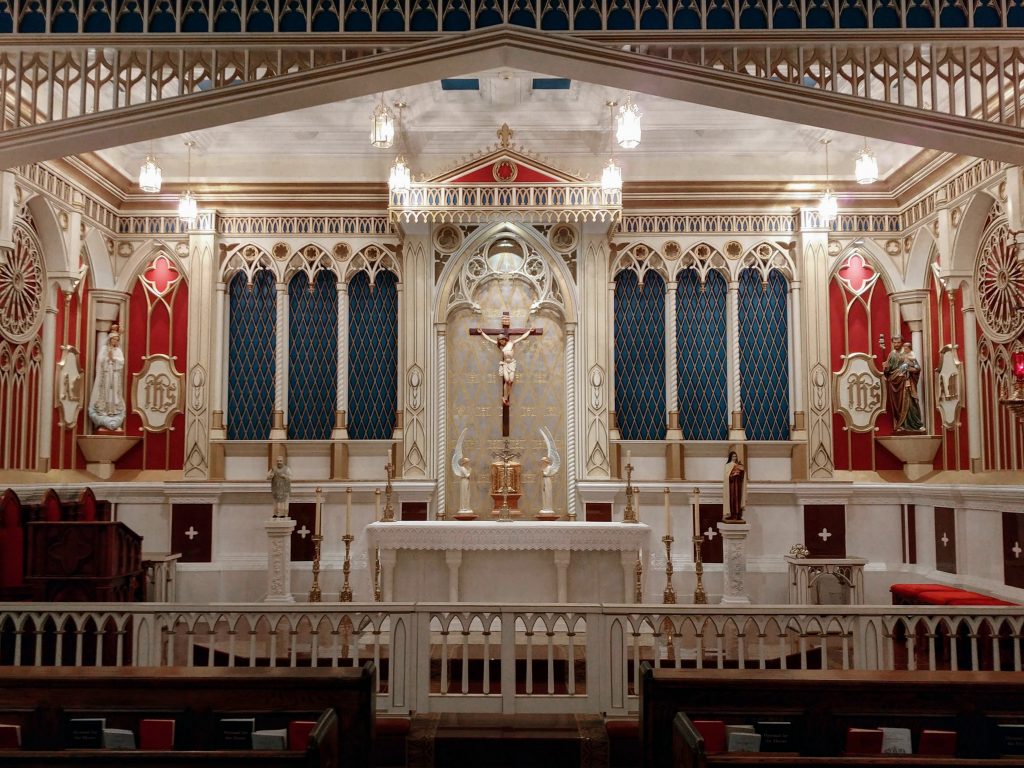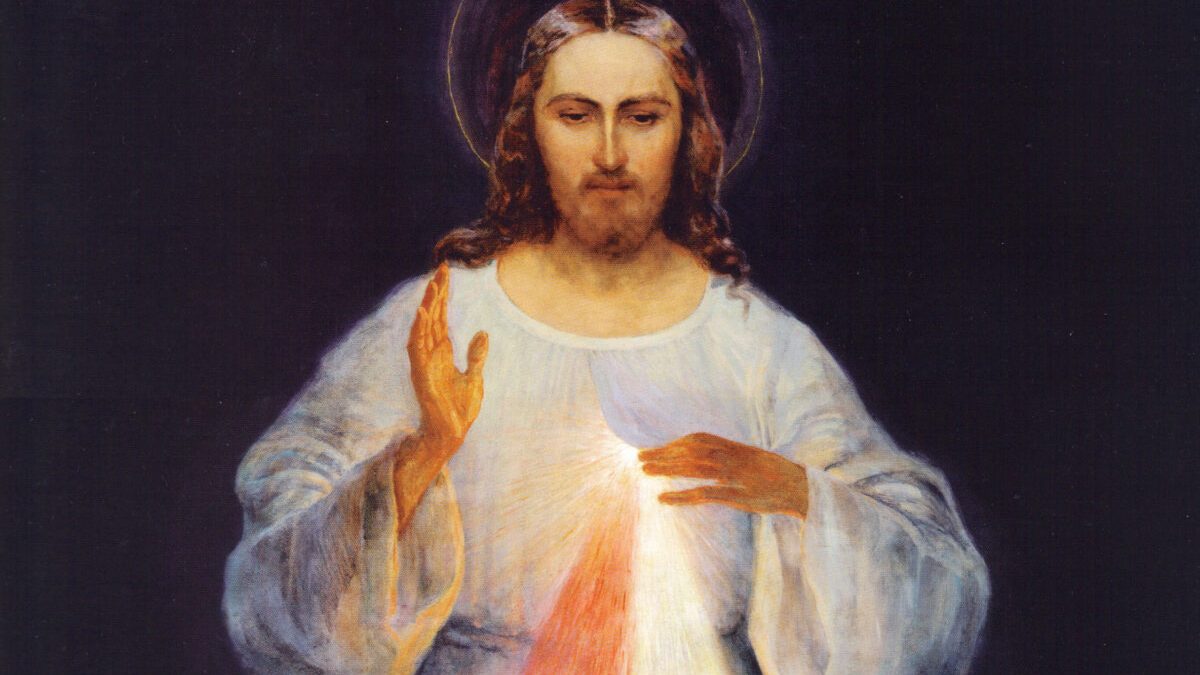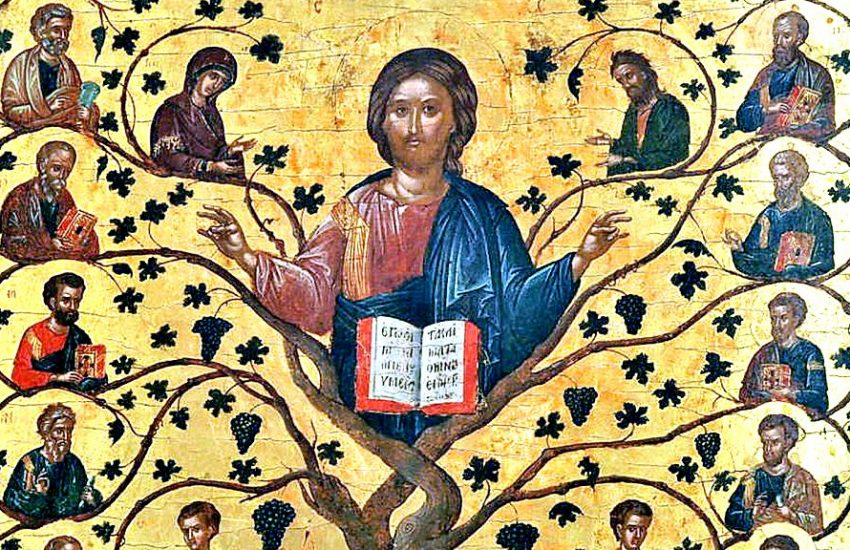It’s All Mercy
2nd Sunday of Easter (Sunday of Divine Mercy)

For the most part, my prayer life is pretty run-of-the-mill, like anyone else’s, I suppose. I’m not one of those levitating saints who slip into ecstasy as their thoughts ascend to the divine. But every now and then God sees fit to throw me a bone and remind me that he’s paying attention.
One such occurrence happened to me in July of 2021. I had just endured a full year of attempting to minister to students I could not be physically present with. Most of my life and ministry was taking place online, which served a purpose but did not provide anything like the personal interaction that ministry — not to mention human relationship in general — demands.
A new pastor had just started in our parish. My home life was changing as my older kids went off to college. Society was embroiled in racial tension and pandemic fear. On the outside I tried to be my usual calm, easy-going self, but inside I was a big bundle of stress. I knew I needed to get away so I booked a few days at the clergy retreat house at the Shrine of the Most Blessed Sacrament in Hanceville, AL (the final resting place of Mother Angelica of EWTN fame).
After a relaxing five-hour drive mostly through mountain backroads, I checked in with the guest master of the retreat house, dropped my bags off in my room, grabbed my breviary and headed into the chapel for Evening Prayer before dinner. I sat down in a pew, looked up at the crucifix, and exhaled. I was finally in a place I could rest. Before I opened my prayer book, I silently said my favorite prayer, which I repeat often every day: Lord, have mercy.
In that instant, a feeling of overwhelming peace swept over me as every muscle in my body relaxed. And I heard God’s voice say, “It’s all mercy.” When I say that I “heard” God’s voice, I don’t mean with my ears. There was no audible sound. But I perceived those words very clearly and deeply in my spirit. I breathed a quiet “thank you” to my Savior and then began Evening Prayer… “God, come to my assistance; O Lord, make haste to help me…”

It’s all mercy
What is mercy? That’s a good question to ponder in this season of Divine Mercy. Since the year 2000 and the canonization of St. Faustina Kowalska, the Second Sunday of Easter has been celebrated as “Divine Mercy Sunday.” St. Faustina is the Polish nun and visionary who popularized devotion to the Divine Mercy through recitation of the Divine Mercy Chaplet and the image of Divine Mercy she had commissioned from her visions of Christ. The message she received in her visions, as recorded in her diary, is summarized on the Divine Mercy website with an ABC formula. Ask for God’s mercy. Be merciful. Completely trust in Jesus.
We often think of God’s mercy in terms of forgiveness. When we repent of our sins and seek reconciliation with God, we humbly ask for God’s mercy as our sin — that is to say, our willful rebellion — is the one thing that can separate us from God and deprive us of eternal life.
We should be eternally grateful, therefore, that God has given the Church the Sacrament of Reconciliation (aka Confession), as the remedy and sure channel of grace for repentant sinners. We read about the establishment of this sacrament in the gospel on Divine Mercy Sunday. Christ appeared to the Apostles on the Sunday after the Resurrection and told them, “As the Father has sent me, so now I send you.” He then breathed His Spirit into them, and said, “Receive the Holy Spirit. Whose sins you forgive are forgiven them, and whose sins you retain are retained” (Jn 20:19-23). Christ’s mission of mercy is now the mission of the Church, and the Church has been given the divine authority to carry it out.
The Church constantly prays for God’s mercy. We begin each Mass by praying, “Lord, have mercy, Christ, have mercy, Lord, have mercy,” Kyrie eleison, Christe eleison, Kyrie eleison. When we pray the Divine Mercy chaplet, we repeatedly pray for God to “have mercy on us and on the whole world.” A common devotion (especially in Eastern Churches) is to pray the “Jesus Prayer” throughout the day: “Lord, Jesus Christ, Son of God, have mercy on me, a sinner” (cf. Lk 18:10).
If we think God’s mercy is limited to forgiveness, the idea of constantly asking for God’s mercy may seem rather discouraging, especially for anyone with scrupulous tendencies. If God is so ready to forgive us, as Jesus describes in the parable of the Prodigal Son (see Lk 15:11-32), why do we need to keep begging for His mercy? Isn’t the whole point of confession that our sins are forgiven and behind us? Doesn’t the Divine Mercy message tell us to trust in Jesus? And doesn’t asking for mercy over and over again imply that we haven’t received it yet?
A wideness to God’s mercy
There is an old hymn entitled “There’s a Wideness to God’s Mercy.” If we struggle with the idea of constantly imploring God’s mercy, perhaps we need to widen our understanding of what mercy is.
The Latin word for mercy is misericordia, which literally translates as “a heart for suffering.” It means that God’s heart is drawn towards those who struggle. He longs to help them; and that’s what mercy really is — help. We all need God’s help.
Help comes in many forms. Think of it in human terms. If someone has wronged you and is truly sorry, the merciful thing to do is forgive them. But if someone is hungry and you have a sandwich, the merciful thing to do is to share it with them. If someone is lonely, the merciful thing to do is to sit with them.
Similarly, if we are sinners in need of forgiveness (and we all are at different points in our lives) then the essential thing we need from God is reconciliation. That’s a mercy, and God grants it. But that’s not all the help we need from God. If I am worried about a family member who is ill, I need God to strengthen me. If I grieve over a lost loved one, I need God to console me. If I struggle to understand the material I’m studying for an exam, I need God to enlighten my mind. If I am tempted to fall into vice, I need God to fortify my will. If I am tempted to speak out in anger, I need God to curb my tongue. These are all mercies that we need from God.
God cares for us and wants us to entrust Him with our needs. So if I am tired and need rest, I can pray Lord, have mercy. If I am hungry and need food, I can pray Lord, have mercy. If I am afraid and need assurance, I can pray Lord, have mercy. If I doubt and need faith, I can pray Lord, have mercy.
The fact that I woke up this morning is a mercy. The air that I breathe is a mercy. The blood flowing through my veins is mercy. My very existence is an unmerited gift from God. It’s all mercy.
What I took from my encounter with Divine Mercy in that little chapel in Alabama and what I want to pass on to you on this Divine Mercy Sunday is this: God loves us. Every one of us. Always. He knows our struggles, our needs and our longings. And he knows the remedy. He knows exactly what is required for our ultimate good and every action He takes in our lives is toward that end. Everything God does is to help us. That’s what “It’s all mercy” means. We just need to trust Him.
So when we pray over and over again Lord, have mercy, it’s not because we doubt God’s benevolence or think He needs convincing. No. It’s because we have tasted the goodness of the Lord and we are hungry for more. Kyrie eleison. Christe eleison. Kyrie eleison. Amen.



